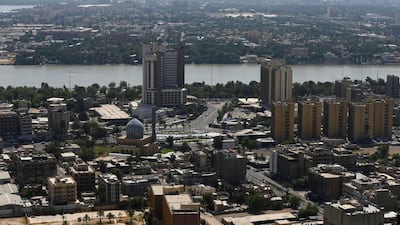Iraq’s economy, which shrank by about 11 per cent last year due to Covid-19 and a sharp decline in oil revenue, is poised to return to pre-pandemic levels by 2024, the International Monetary Fund said.
The slowdown in the real gross domestic product reflects a drop in non-oil activity and reduction in crude output as a result of Opec+ decisions, the fund said.
"Large fiscal and external current account deficits of 20 per cent and 16 per cent of the GDP, respectively, constrained the government's ability to mount an effective fiscal response to the crisis," the IMF said.
The IMF stressed the importance of fighting corruption in key public institutions and restructuring large state-owned banks to foster financial stability and develop the private sector.
Iraq has begun taking much-needed steps towards ensuring future economic stability.
The Central Bank of Iraq devalued the currency by about 23 per cent against the US dollar in December – a move the fund expects to help reduce external imbalances and preserve foreign exchange reserves.
The draft 2021 budget is intended to cut the fiscal deficit through various measures to raise non-oil revenue and contain the unsustainable expansion of pension bills and government wages, the IMF said.
Owing to the efforts, Iraq’s economy is expected to gradually recover and grow by 1.2 per cent and 3.9 per cent in 2021 and 2022, respectively, according to the IMF forecast. The economy grew by 4.5 per cent in 2019.
The fiscal and external current account deficits are expected to decline over the medium term while government debt is set to peak in 2023 and decline gradually after that, the fund said.
Iraq, Opec’s second-largest oil producer, relies on oil revenue to foot 90 per cent of government expenditure, including a $5 billion public sector wage bill each month.
The IMF also said political constraints before the parliamentary elections and renewed bouts of unrest could undermine the reform efforts.
Furthermore, pandemic‑related risks and oil market uncertainties could further complicate the economic situation, it said.


